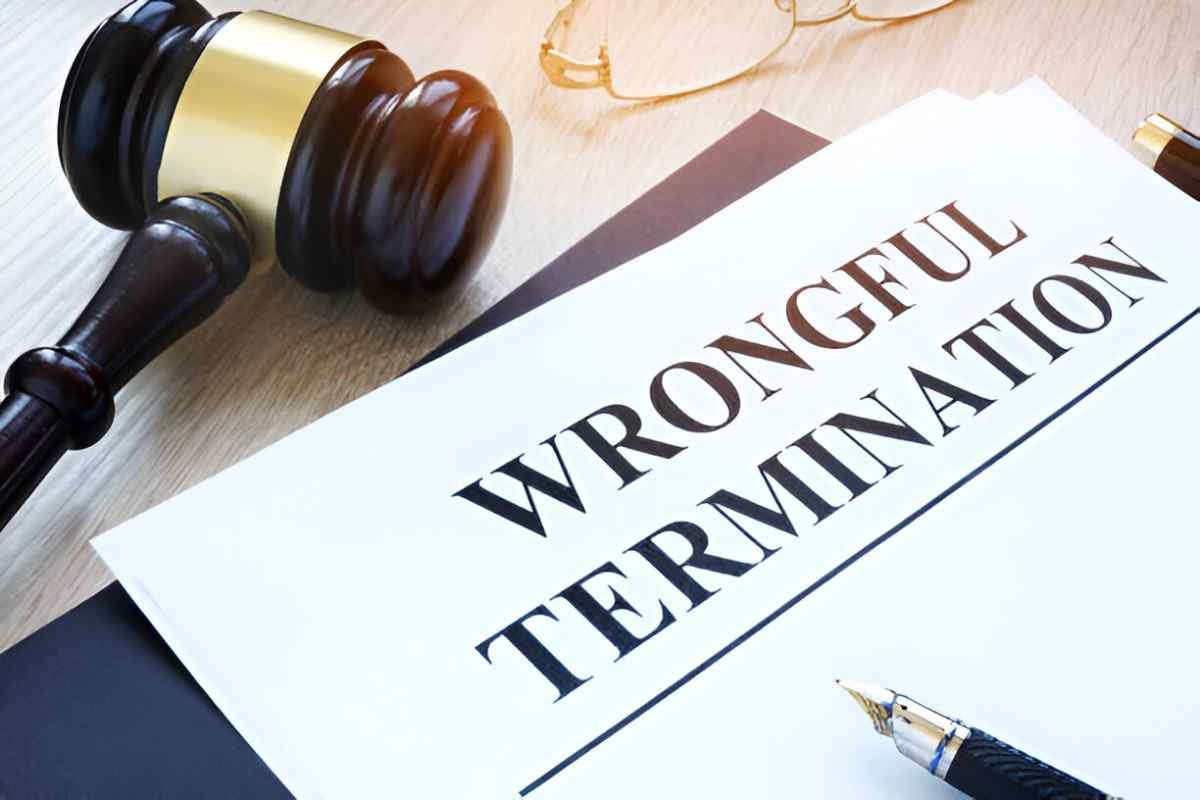As someone who has spent years navigating the complexities of employment law, I understand how overwhelming it can be to face wrongful dismissal. Losing a job is never easy, but when it happens unfairly, it can feel like a violation of your rights. In this article, I will guide you through the concept of wrongful dismissal, explain your rights as an employee, and provide actionable insights to help you protect yourself. Whether you’re currently facing this situation or simply want to be prepared, this deep dive will equip you with the knowledge you need.
Table of Contents
What Is Wrongful Dismissal?
Wrongful dismissal occurs when an employer terminates an employee in violation of the terms of their employment contract or in breach of federal or state labor laws. It’s important to note that wrongful dismissal is not the same as unfair dismissal. Unfair dismissal often refers to situations where an employee is fired without a valid reason, while wrongful dismissal specifically involves a breach of contract or law.
For example, if your employment contract states that you can only be terminated for specific reasons, such as gross misconduct, and you are fired without evidence of such misconduct, you may have a case for wrongful dismissal. Similarly, if you are terminated in violation of anti-discrimination laws, such as the Civil Rights Act of 1964, this could also constitute wrongful dismissal.
At-Will Employment vs. Contractual Employment
In the United States, most employees work under at-will employment agreements. This means that either the employer or the employee can terminate the employment relationship at any time, for any reason, or for no reason at all, as long as the reason is not illegal. However, there are exceptions to this rule, and understanding them is crucial.
At-Will Employment Exceptions
- Implied Contracts: Even in at-will states, an implied contract can exist if an employer’s actions or statements suggest job security. For example, if your employer promises job security during a performance review, this could create an implied contract.
- Public Policy Violations: You cannot be fired for reasons that violate public policy, such as refusing to engage in illegal activities or reporting workplace safety violations.
- Discrimination: Federal and state laws prohibit termination based on protected characteristics such as race, gender, religion, age, or disability.
On the other hand, contractual employment involves a written agreement that outlines the terms of employment, including the conditions under which termination can occur. If you are under a contractual agreement, your employer must adhere to the terms specified in the contract.
Common Grounds for Wrongful Dismissal
To better understand wrongful dismissal, let’s explore some common scenarios where it may occur:
1. Breach of Contract
If your employment contract specifies that you can only be terminated for cause, and your employer fires you without cause, this constitutes a breach of contract. For example, if your contract states that you can only be terminated for poor performance, and you are fired without any documented performance issues, you may have a valid claim.
2. Violation of Anti-Discrimination Laws
Federal laws such as Title VII of the Civil Rights Act, the Americans with Disabilities Act (ADA), and the Age Discrimination in Employment Act (ADEA) protect employees from being fired based on protected characteristics. If you believe your termination was motivated by discrimination, you may have grounds for a wrongful dismissal claim.
3. Retaliation
Employers cannot retaliate against employees for engaging in protected activities, such as filing a complaint about workplace harassment or reporting safety violations. If you are fired after participating in such activities, this could be considered wrongful dismissal.
4. Failure to Follow Proper Termination Procedures
Some states require employers to follow specific procedures when terminating employees, such as providing written notice or conducting a formal investigation. If your employer fails to follow these procedures, you may have a case for wrongful dismissal.
Calculating Damages in Wrongful Dismissal Cases
If you successfully prove wrongful dismissal, you may be entitled to damages. These damages are typically calculated based on the financial harm you suffered as a result of the dismissal. Let’s break down the types of damages and how they are calculated.
1. Lost Wages
Lost wages refer to the income you would have earned had you not been wrongfully dismissed. This includes not only your base salary but also bonuses, commissions, and other forms of compensation.
For example, if your annual salary is $60,000 and it takes you six months to find a new job, your lost wages would be:
Lost\ Wages = \frac{Annual\ Salary}{12} \times Number\ of\ Months\ Unemployed
2. Benefits
In addition to lost wages, you may also be entitled to compensation for lost benefits, such as health insurance, retirement contributions, and paid time off.
3. Emotional Distress
In some cases, courts may award damages for emotional distress caused by wrongful dismissal. However, these damages are harder to quantify and typically require substantial evidence.
4. Punitive Damages
Punitive damages are intended to punish the employer for particularly egregious behavior. These damages are rare and usually only awarded in cases involving fraud, malice, or gross negligence.
Steps to Take If You Believe You’ve Been Wrongfully Dismissed
If you suspect that you’ve been wrongfully dismissed, it’s important to act quickly and strategically. Here are the steps I recommend:
1. Review Your Employment Contract
Start by reviewing your employment contract to determine whether your termination violated any terms. Pay close attention to sections related to termination, notice periods, and grounds for dismissal.
2. Document Everything
Gather all relevant documentation, including your employment contract, termination letter, performance reviews, and any correspondence with your employer. This evidence will be crucial if you decide to pursue legal action.
3. Consult an Employment Lawyer
Employment law is complex, and the specifics of your case will determine whether you have a valid claim. Consult an experienced employment lawyer to assess your situation and guide you through the legal process.
4. File a Complaint
Depending on the nature of your claim, you may need to file a complaint with a government agency, such as the Equal Employment Opportunity Commission (EEOC) or your state’s labor department. These agencies can investigate your claim and, in some cases, mediate a resolution.
5. Consider Alternative Dispute Resolution
Litigation can be time-consuming and expensive. In some cases, alternative dispute resolution methods, such as mediation or arbitration, may be a more efficient way to resolve your claim.
Preventing Wrongful Dismissal: Tips for Employees
While it’s important to know your rights, it’s equally important to take proactive steps to protect yourself from wrongful dismissal. Here are some tips I’ve gathered from my experience:
1. Understand Your Employment Agreement
Before signing any employment agreement, make sure you fully understand the terms, especially those related to termination. If anything is unclear, ask for clarification or consult a lawyer.
2. Keep Detailed Records
Maintain a record of your performance reviews, emails, and other documentation that demonstrates your contributions to the company. This can be invaluable if you need to defend yourself against wrongful dismissal.
3. Know Your Rights
Familiarize yourself with federal and state labor laws, as well as your company’s policies. This knowledge will help you recognize when your rights are being violated.
4. Seek Legal Advice Early
If you suspect that your employer is planning to terminate you unfairly, seek legal advice as soon as possible. A lawyer can help you navigate the situation and protect your rights.
Case Study: A Real-Life Example of Wrongful Dismissal
To illustrate the concepts discussed, let’s look at a real-life example. Jane, a marketing manager at a mid-sized company, was terminated after she reported sexual harassment by her supervisor. Jane’s employment contract stated that she could only be terminated for poor performance or misconduct, neither of which applied to her situation.
Jane consulted an employment lawyer, who helped her file a complaint with the EEOC. The investigation revealed that Jane’s termination was retaliatory and in violation of Title VII of the Civil Rights Act. Jane was awarded $50,000 in lost wages, $10,000 in emotional distress damages, and $20,000 in punitive damages.
This case highlights the importance of understanding your rights and taking action when those rights are violated.
Conclusion
Wrongful dismissal is a serious issue that can have significant financial and emotional consequences. By understanding your rights and taking proactive steps to protect yourself, you can reduce the risk of being wrongfully dismissed and increase your chances of achieving a favorable outcome if it happens.





